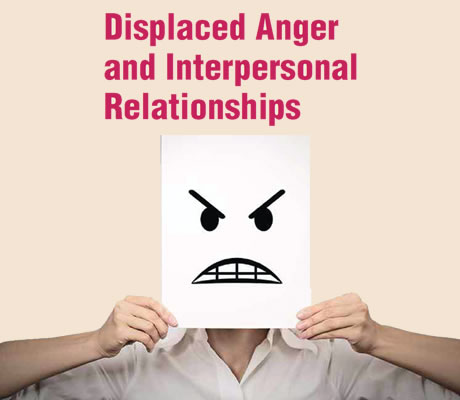Displacement is a defense mechanism in which the person generalizes or redirects a feeling about an object or a response to an object on to another, usually less threatening object. When it comes to the anger, which is usually an unacceptable feeling, people redirect their anger about a person, place or thing towards a safer target.
People are tempted to use this mechanism since it helps the aggressor from not confronting the real target of the anger immediately. Since the confrontation of one’s anger-target could create confl icts and quarrels, many prefer for an option which would permit a lesser opposition from the targets. This indirect mode of aggression hides the aggressor from the real target while expressing the anger. The aggressor feels safer of not receiving any further attack from the real target. The less threatening object who or which receives the outcome of displaced expression of the anger, usually remains silent. Therefore, in the primary level the aggressor remains safe and get relaxed of the anger.
However, displacement produces damages in the interpersonal relationships. Usually the target suffer out of the displaced anger will be subordinates or colleagues of the individual. They can be also the family members or friends in the close circle, because where the individual fiends less danger to express their anger. Those who suffer out of the aggression will be clueless about the behavior. Since displacement is a rather unconscious mechanism in the individual, the person who expresses it also may fi nd it diffi cult to understand the reasons behind. In short the whole process will harm the interpersonal relations of the individual gradually, especially in the relations in the intimate circles.
Edward Erwin (2002) explains the dynamics behind the displacement in the following manner, “As the development proceeds, a progressive differentiation between id and ego occurs, and displacement thus takes on a changing role in defending the ego from unacceptable infl uences” (p. 152). In other words it is an attempt of the ego to cope up with anger aroused while id was controlled or checked by the super ego. Ego fi nds a lesser dangerous object or process to deal with the anger.
In the case of an anger expression, the super ego can be a value which prevents one to express the anger in any manner. In the interpersonal context it can be another person with whom the individual does not feel safe to express the anger. So, behaviour of displaced anger needs to be addressed with an integral vision. One has to be aware of possible ways of healthy expressions of anger. Working on one’s insecurity feeling within the relationships also would help one to express the anger in a healthier mode.
– Fr.Jo Paul Kiriyanthan


